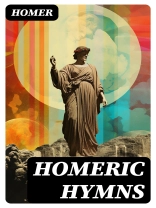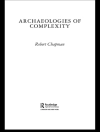The ‘Homeric Hymns’ is a collection of ancient Greek hymns attributed to Homer, encompassing a diverse array of themes centered around the gods and goddesses of Greek mythology. Composed in dactylic hexameter, the hymns are marked by their elevated language, vivid imagery, and a blend of narrative and invocation that reflects the oral tradition from which they spring. The collection not only serves as a poetic homage to divine figures such as Apollo and Demeter but also functions as a crucial artifact of the religious and cultural values of Ancient Greece, capturing the interplay between mythology and everyday devotion in a society deeply connected to its pantheon. Homer, often cited as the foundational figure of Western literature, lived during the 8th century BCE and is best known for the epic tales of the ‘Iliad’ and ‘Odyssey.’ The ‘Homeric Hymns’ are believed to have been composed later, perhaps by the same bardic tradition, showcasing his profound understanding of mythological themes and their significance. This context reveals Homer’s intention to bridge the heroics of epic poetry with the reverence of religious expression, inviting a deeper contemplation of the divine. The ‘Homeric Hymns’ is a seminal work that not only enriches our understanding of ancient spirituality but also stands as a testament to the enduring power of poetic voice in exploring humanity’s relationship with the divine. This collection is essential for anyone seeking to grasp the intricacies of Greek mythology, as well as the broader implications of Homer’s literary legacy.
Mengenai Pengarang
Homer stands as a monumental figure in the annals of classical literature, widely hailed as the greatest epic poet of ancient Greece. Though the historicity of the man remains shrouded in the mists of time, his name is forever linked with two of Western civilization’s earliest and most influential works, the ‘Iliad’ and the ‘Odyssey.’ These masterpieces are cornerstones of epic poetry and have profoundly influenced the Western canon. In addition to these seminal epics, the ‘Homeric Hymns’—a collection of poems also ascribed to this enigmatic bard—shed light on his diverse literary skills as they celebrate the pantheon of Greek gods with lyrical finesse. The hymns vary widely in length, encapsulating the essence of Homeric tradition with a rich tapestry of divine lore, early religious practices, and captivating storytelling. Homer’s literary style is marked by his use of dactylic hexameter, vivid imagery, and timeless themes such as honor, courage, and the nuanced interplay between humans and the divine. Although the precise dates of his life and the question of his very existence remain a topic of academic debate, Homer’s influence echoes through the millennia, from ancient oral traditions to contemporary literature and beyond. His narratives continue to be studied, adapted, and revered for their profound impact on storytelling and the perception of heroism in human culture.












